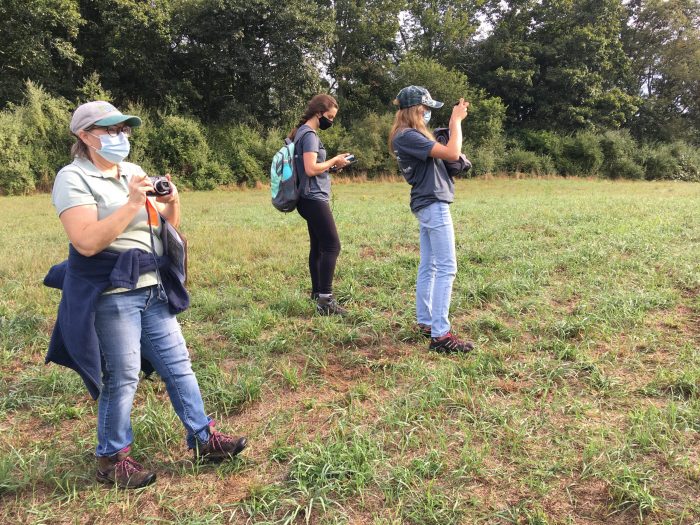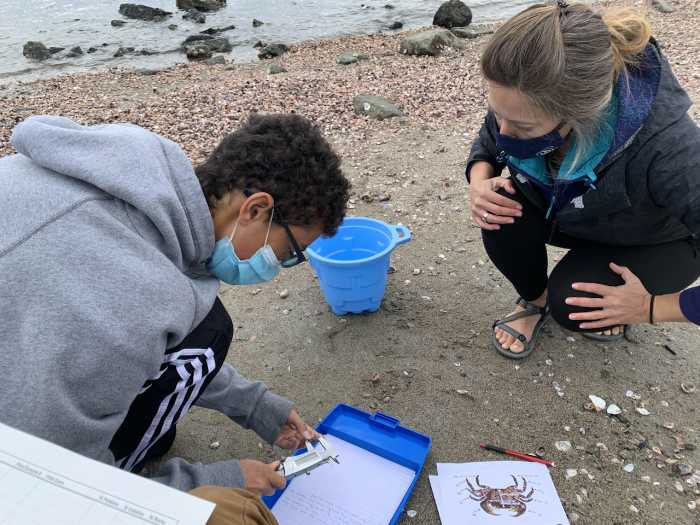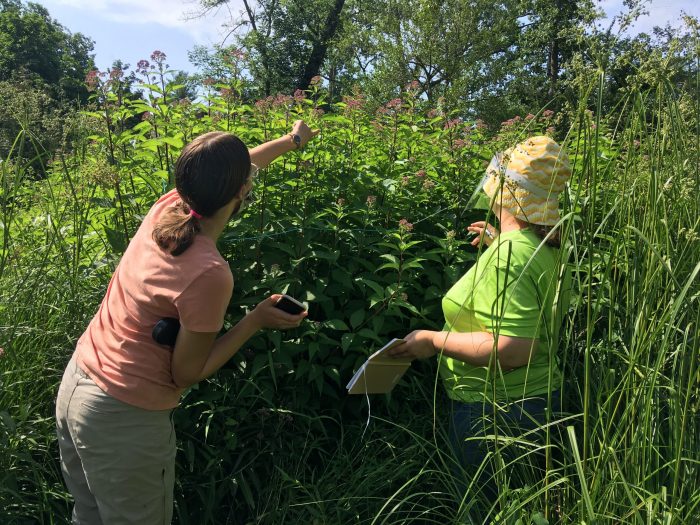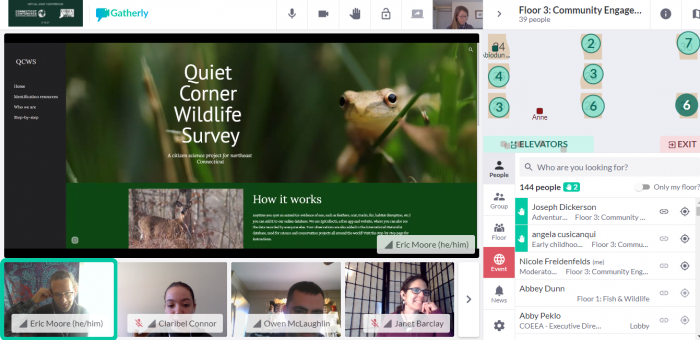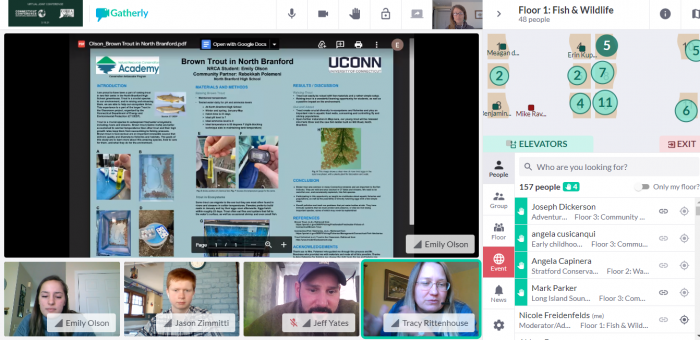We made it.
Let’s take a moment to allow that to sink in.
We made it.
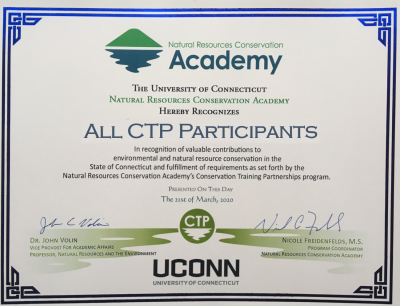
Yesterday, participants from the 2020 Conservation Training Partnerships cohort showcased their community conservation projects at the CCNR-COEEA Virtual Joint Conference. In a typical year, the conference is hosted at the University of Connecticut and presenters stand next to large, printed posters, sharing brief summaries of their projects as attendees stroll by. This was anything but a typical year.
The 2020 CTP cohort first participated in a two-day fully virtual workshop last July. This was after many of them had signed up for the program thinking it would be two days spent outside together, learning tools and technology to connect with nature. Then everything changed and we were all sent to work and learn from home.
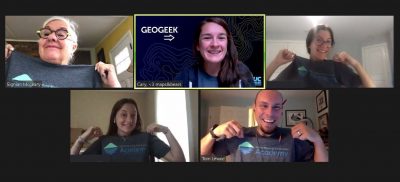
During last summer’s workshop, CTP teams planned and developed actions they could carry out to benefit their local environment and community, while keeping in mind important COVID-19 safety considerations. And then they were off – making it happen!
I’m excited to use this venue to highlight their diverse and unique projects, for which teams utilized crowd-sourced data collection and mapping apps, created websites and StoryMaps, and educated the public through their outreach efforts. The CTP website will also have a complete list as additional links become available.
Twenty-two teens and nineteen adults formed the seventeen teams shown below, organized by project title:
- A Tale of Two Preserves: Plant Diversity and Pollinator Abundance — Harper & Angela
- Beneficial Insects in the Garden — Caleb, Fatih & Brett
- Birds of Milo Appley Conservation Showcase — Rachael, Genevieve & Judy
- Connecticut Animal Rehabilitation Centers and Information — Charlotte & Justin
- The Cheshire Conservation Connection — Aishwarya, Isabella, Julianna, Katy, Tom & Signian
- Experience Roraback Wildlife Management Area — Phoenix, Amanda & Lance
- Floral and Faunal Life Survey Along the Wallingford Quinnipiac River Linear Trail — Ana & Aubree
- The Impacts of Forestry Practices in Massacoe State Forest — Maggie & Susan
- Invasive Plants at Buckingham Reservoir — Isha, Lindsay & George
- Mapping the Watershed at TMGSMMS — Claudia
- Norwalk Composting Survey — Hannah & Mary Ellen
- Plants & Animals at Osbornedale State Park — Dakota & Carol
- Quiet Corner Wildlife Survey — Claribel & Mary
- Scoville Loop Community Outreach — Isabella & Owen
- Surveying Asian Shore Crabs in Fairfield, Connecticut — Jackson & Jason
- Town Farm Brook – Mapping the Future of Restoration on a Native Brook Trout Stream — Jason & Jeff
- Water Chestnut at Hanover Pond — Haley & Emily
Many of these fantastic projects were showcased during yesterday’s virtual Poster Session hosted through the platform Gatherly. It wasn’t the same as an in-person conference experience, but it was the best we could do under the circumstances. Everyone had such a positive attitude and just “rolled with it.” I wish I’d had more time to visit each booth and see each team present.
2020 was hard.
2021 hasn’t gotten much easier.
Working with these participants has kept me going this past year, and I’m grateful to them for putting up with my endless emails, letting me tag along during their field visits, and sticking with the program as long as they did. My NRCA colleagues and I are beyond impressed with everything they accomplished amidst this awful pandemic.
To this amazing group of high school students and adult volunteers I send my most sincere congratulations.

